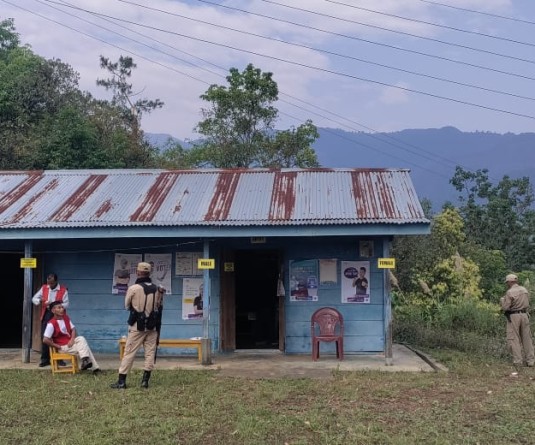
7-member fact finding team visits Karbi Anglong district
Dimapur, January 24 (MExN): While pointing out that “demands of ethnic groups are being manipulated for expedient gain by mainstream political forces,” a 7-member fact finding team to Karbi Anglong district expressed concern that perpetrators of the recent violence in the district “have not been identified, far less brought to book.”
In a memorandum to the Governor of Assam, JB Patnaik, the fact finding team sought the immediate intervention of the former. They urged the Governor to advise the Assam state government and the Karbi Anglong Autonomous District Council to “ensure accountability for the violence and adequate compensation for the victim-survivors and every opportunity for them to reconstruct their lives and livelihoods.”
The team constituted under the aegis of Human Rights Law Network visited Karbi Anglong district “to inquire into a series of targeted attacks and the retaliatory violence that followed.” The team visited the Shantipur Relief Camp-Borpathar Primary School met with Karbi Anglong Peace Forum, district administration and police in the period from January 15-17.
Lamenting that the failure to identify and book the perpetrators would allow for “rumour to flourish and for mutual suspicions to mount,” the memorandum stated that this will lead to a “deepening estrangement between Karbi Anglong’s main tribal communities.”
The fact finding team stated the “tension probably has its genesis in rival claims from the Karbi and Rengma Naga tribal communities for greater autonomy than currently available under the Sixth Schedule to the Indian Constitution.” The team informed that they had “been told that in the absence of fair mediation between these competing demands, a number of armed groups have sprung up which claim to represent these communities, but are seen by civil society and political organisations to be actively impeding their pursuit of collective demands.”
It also said a number of minor incidents occurring over the recent past, particularly since June last year, and expanding into late-December 2013 and early-January 2014 resulted in the death of 15 people (6 Rengma Naga and 9 Karbi). It stated that based on their interactions with a number of administrators, civil society organisations and individuals displaced in the recent violence, the current trouble in Karbi Anglong began with a number of minor incidents that were clearly identified by responsible citizens as potential flashpoints for future trouble. However, “despite a number of entreaties to check the alarming spiral of hostile rhetoric and actions, the local administration remained quiescent.”
The fact finding team’s inquiries revealed that these killings have been “random and brutal, but with a clear racial motivation.” The memorandum stated, “The shooting and burning of elderly women of the Rengma Naga community, the burning of their homes and the destruction of their orange orchards and betel nut trees, together with what seem to have been retaliatory killings of Karbi youth who just happened to be in the wrong place at the wrong time, show that the alienation between the communities has reached alarming levels.”
The team concluded that “many of the demands of these ethnic groups have been manipulated for expedient gain by mainstream political forces.” It further added “that the armed groups that claim to be working for the cause of these ethnic groups may themselves be playthings in the hands of larger political forces.” It stated that interventions by state and national level groups are “generally motivated by resource exploitation interests,” and suggested that such involvement “should be premised on the decree that they will do no harm.”
The memorandum expressed optimism that “there are ways of mediating between the competing demands of the Rengma Naga and Karbi communities – and indeed, all other tribal groupings in Karbi Anglong – without providing any room for unresolved claims to spill over into violence,” This, it said “would require a comprehensive policy to be worked out within a consistent framework of principles, to ensure every ethnic group a proper place of dignity, full access to their traditional resources and every opportunity to pursue avenues for growth and development.”
Call for independent judicial inquiry
In a separate representation to the Chief Justice of Gauhati High Court, Justice Abhay Manohar Sapre, the fact finding team pointed to the urgent need to have an “independent judicial inquiry to find out genesis which has led to the conflicts between tribes.” It emphasized on the importance “to take necessary action as per law following the principle of rule of law.” It further pointed to the State Government’s complete “failure to maintain law and order on time despite prior intimation to save the life and properties of the people.”




